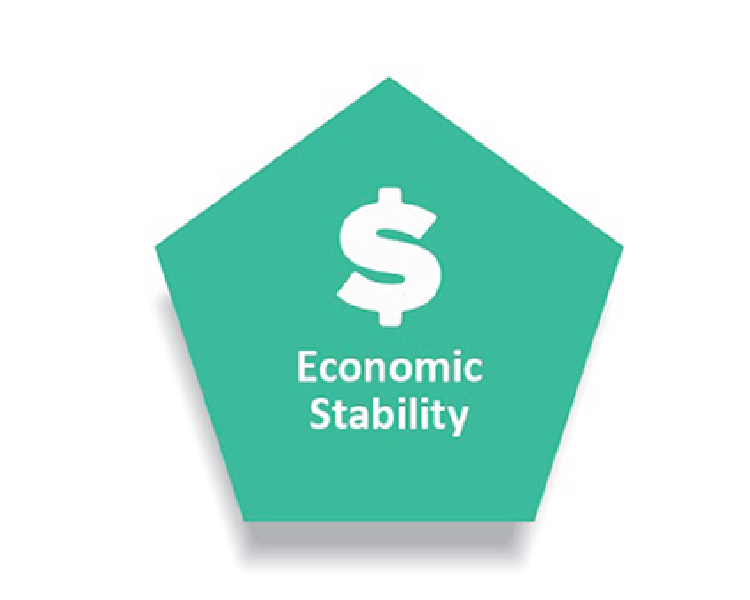We all have grown up understanding the important role our friends and family play in our lives. From influencing our decisions, for better or for worse, and co-creating with us some of our most precious memories – community and social ties are essential. But taking a deeper look at the role these relationships play in our lives, we can see that they have an even greater impact on our overall well being. As outlined by the social determinants of health (SDoH), social and community context carries extreme influence over our individual health outcomes. Various social studies linking social networks and social support to positive physical and mental health outcomes further reinforces this. Knowing the importance carried by social relationships, we’re digging deeper into what this actually means. We’ll also cover a few ways you can begin to integrate the SDoH into your practice as a Peer Professional, highlighting social and community context!
What is Social and Community Context?
In reference to the SDoH, social and community context indicates all social relationships at work, home or in the community. Within the context of social determinants, social and community relationships play a vital role in our overall health outcomes. Positive social relationships lead to, you guessed it, more positively leaning health outcomes.
Social and community context can be characterized by two variables, social networks and social support. Social networks refer to the web of person-centered social ties, encompassing all interpersonal social relationships. On the other hand, social support focuses on assistance that someone might receive from their social network. Examples of social support are emotional, informational, and instrumental. This is where Peer Professionals can leverage their experiences to clients in recovery.
Why is This Important?
Building a community network that supports your recovery is critical to your success. When working with clients from various backgrounds, you are bound to encounter multiple individuals who do not have a historical community or social network that has proven to support their life outside of active use. Whether stemming from relationships developed early in life, or while in active use – many of the people we interact with social while in active use are not conducive to our overall health in relation to recovery specifically.
Aside from recovery, we do see a correlation between positive social interaction and relationships and better prognoses and survival of some major illnesses. This also translates to the mental health landscape, social networks proving to buffer stressful life situations and improving mental health outcomes when they do arise.
As you navigate the new world of recovery with clients, you will undoubtedly introduce them to more of the recovery community. Keep reading to find a few ways you can start to integrate the social determinants, and consideration for social support into your practice as a Peer Professional.
Supporting Clients’ Experiences With Social Relationships
Building recovery capital by forging relationships that support an individual’s recovery goals is one of the most effective ways to reinforce their recovery. Using the SDoH as a guide during client services can offer you a closer look into how to best support each unique client. Find some example questions that can prompt these discussions and offer you valuable insights.
Using the SDoH as a framework, work with your client to uncover their experiences with community throughout their lifetime, and how this may have impacted their health outcomes. Some questions you might consider:
- Has your client built a strong social network?
- Does your client have social relationships compatible with their recovery?
- Does your client belong to any community groups?
- Is your client interested in forging more social connections?
- Does your client have social relationships that offer emotional, instrumental and informational support?
- How can your client create community relationships that support their recovery?
Assess the circumstances fully, and let this serve as a guiding light while you find specific resources that can effectively support your client further along their journey. Remember, your client might not have experience with these systems and processes, so assist them in learning how to navigate this new territory.
Start Utilizing the SDoH Today!
Leveraging the right tools and resources to gain valuable insights into client needs stands as a pivotal element for your success as a Peer Professional. Grasping the profound effects that social supports wield over holistic health is an additional tool empowering you. With the foundational knowledge for utilizing Social Determinants of Health (SDoH) as a resource, it’s time to seamlessly integrate these principles into your role as a Peer. Learn more about the SDoH and other resources available to you below!
Learn More About Social Determinants
The Kyros Peer Resource Hub was largely created by Peers, for Peers. Find other education-related resources and more here to assist you in providing tailored support to your clients.
Sources:
Annual Review on Public Health. “The Social Determinants of Health: Coming of Age.” Paula Braveman, Susan Egerter, and David R. Williams, 2011. https://www.annualreviews.org/doi/pdf/10.1146/annurev-publhealth-031210-101218.
Accessed 18 August, 2023.
NIH. “The Impact of Social and Cultural Environment on Health.” National Library of Medicine, 2006. https://www.ncbi.nlm.nih.gov/books/NBK19924/.
Accessed 18 August 2023.
U.S. Department of Health and Human Services. “Social Determinants of Health – Social and Community Context.” Healthy People 2030, 2023. https://health.gov/healthypeople/priority-areas/social-determinants-health.
Accessed 17 August 2023.



